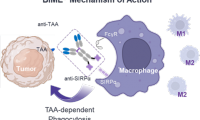-
NIHR awards over £20m to eight new global health research projects
- Source: drugdu
- 152
- February 27, 2024
-
Elpiscience and Astellas Enter into Research Collaboration and License Agreement for Novel Bispecific Macrophage Engager
- Source: drugdu
- 143
- January 2, 2024
-
Johns Hopkins researchers find minimal regret after gender affirming surgery
- Source: drugdu
- 124
- December 30, 2023
-
UK-India research project trialling easy-to-use UTI test to support fight against AMR
- Source: drugdu
- 93
- December 6, 2023
-
Cancer Research UK and Guardant collaborate to advance cancer detection and treatment
- Source: drugdu
- 89
- December 6, 2023
-
Research Explores Adverse Outcomes From Energy Drink Intake Before, During Pregnancy
- Source: drugdu
- 106
- December 4, 2023
-
Breakthrough decoding of the Y chromosome revolutionizes digestive disease research
- Source: drugdu
- 191
- November 25, 2023
-
Stem-cell-derived brain cells hold promise for Alzheimer’s, Parkinson’s research
- Source: drugdu
- 113
- November 21, 2023
-
UTS researcher tests new handheld device for rapidly and accurately identifying drug specimens
- Source: drugdu
- 158
- November 18, 2023
your submission has already been received.
OK
Subscribe
Please enter a valid Email address!
Submit
The most relevant industry news & insight will be sent to you every two weeks.













